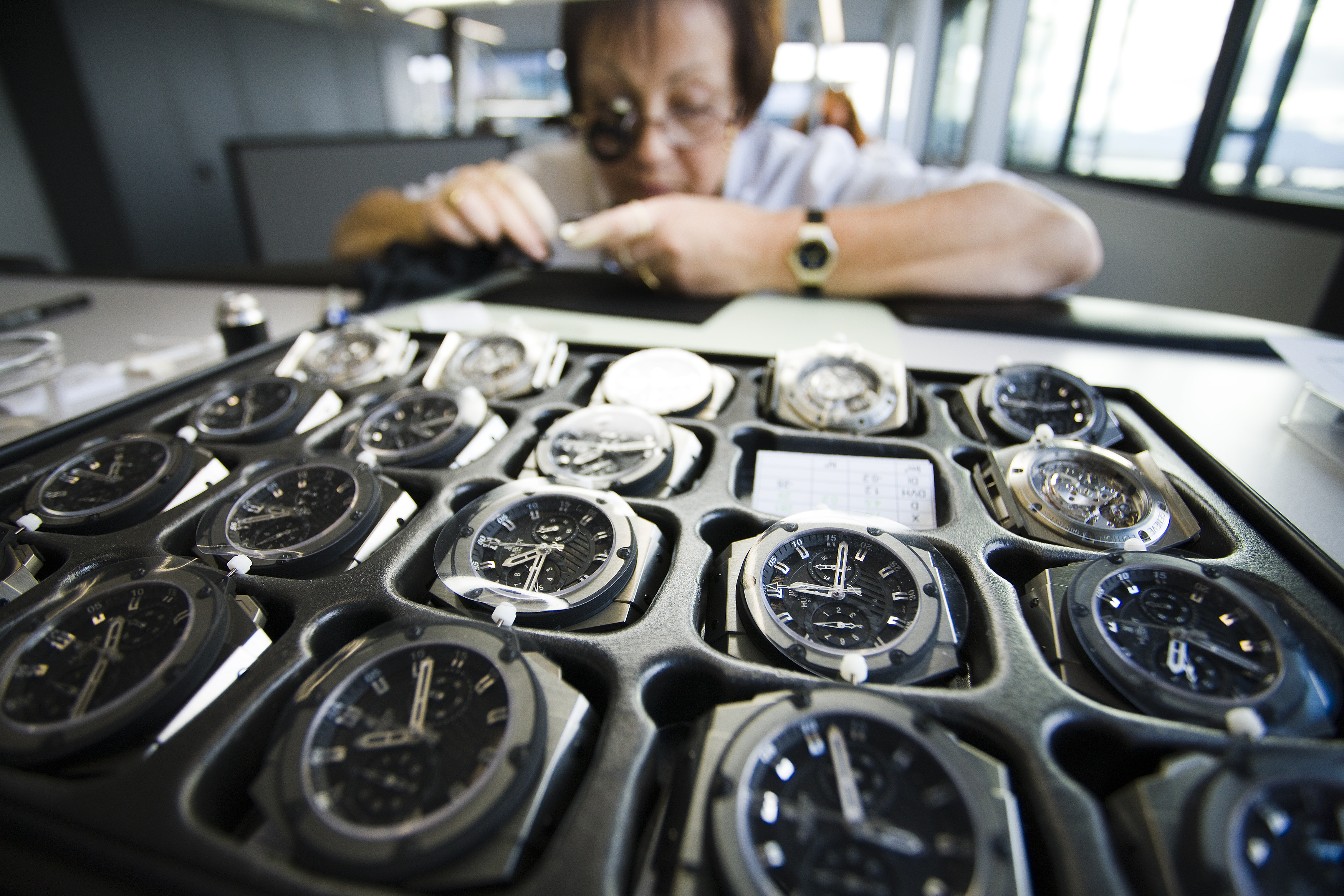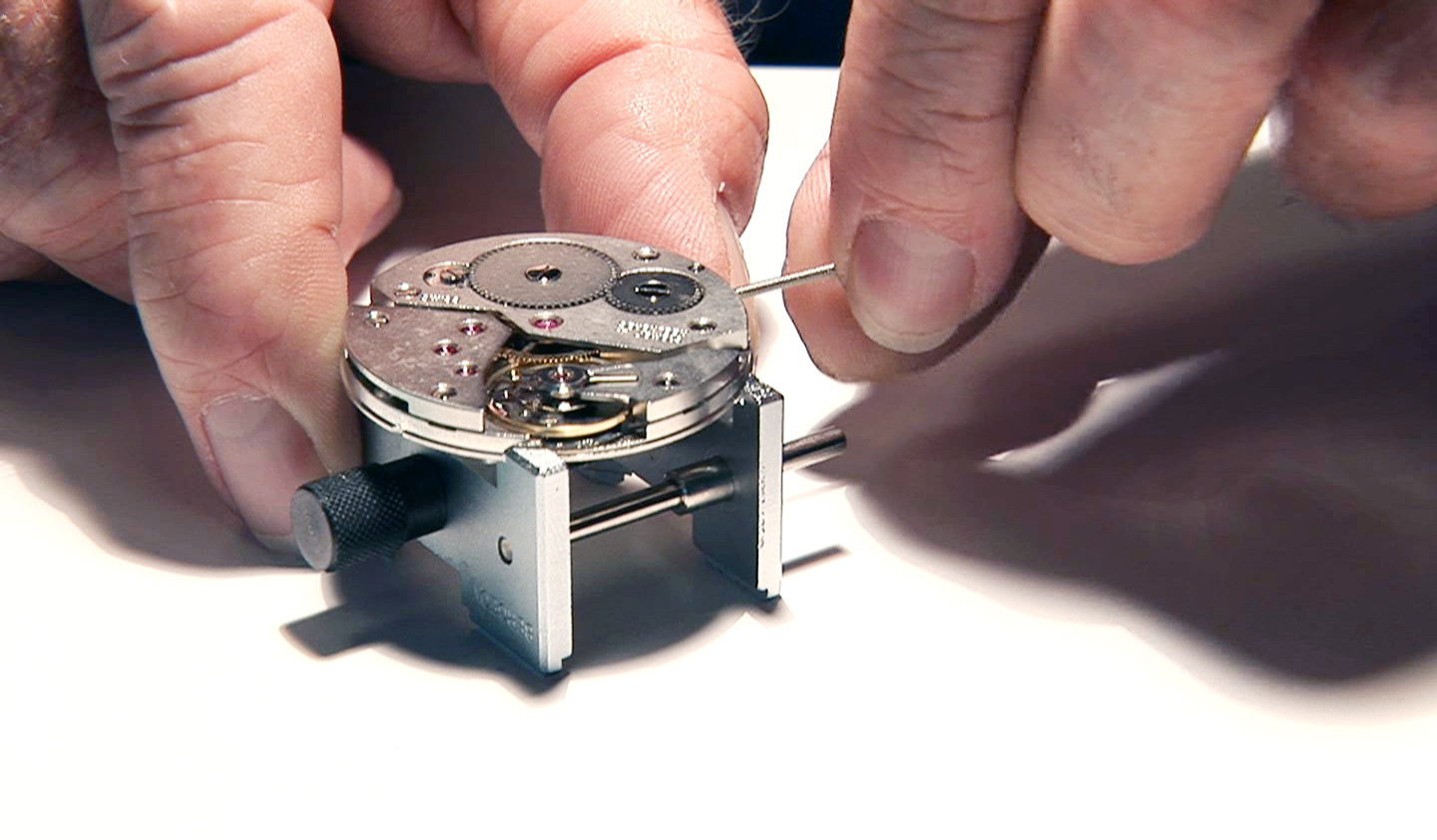Watchmakers rub hands at revival

The Swiss watch industry is toasting an excellent November and isn’t far off the record year of 2008. Last year’s dip has already been forgotten.
Last month Swiss watch exports increased by almost 30 per cent compared with 12 months ago. What’s more, the demand for workers is also up.
“The sector lost a quarter of its turnover in 2009, but only eight per cent of staff – of whom four per cent were given notice,” François Matile, head of the employers’ association for the Swiss watch industry, told swissinfo.ch.
In other words, watchmaking resorted to a large extent to a shortened working hours scheme – still the case in many industries – but staff were by and large able to keep their jobs.
The system, that relies on the state and companies jointly making up the wages of workers on reduced hours, is estimated to have saved up to 20,000 jobs in 2009.
“Socially fair”, as Matile described the approach. He said it was also right in terms of corporate strategy as it enabled companies to step on the accelerator immediately once business got going again.
In recent months the growth of employment in the watch sector has been very real, although it varies from one company to another. Nevertheless Matile says it’s hard to quantify.
“But based on what people are saying and looking at the number of job offers, business is really taking off,” he said.
This week the Geneva-based newspaper Le Temps reckoned that 700 watchmaking positions had sprung up in the Jurassic Arc, the “Watch Valley” from Geneva to Basel which is the primary location of the Swiss watchmaking industry.
Luxury boost
This revival in the job market follows on the heels of a revival in exports, which rose by 29.7 per cent to SFr1.78 billion ($1.85 billion), making a total of SFr14.6 billion over 11 months.
By the end of the year, these figures – slightly higher than those of 2007 – should come close to the 2008 record, when SFr17 billion was made.
If a general increase has been seen across the board, watches costing more than SFr3,000 have been seen by many as the success story of 2010.
Also, the Asian markets played a big role in the export increase. While Hong Kong absorbed more than a fifth of exports (SFr359.6 million), Singapore came in fourth position (SFr118.7 million). The United States and France occupied second and third positions.
On the whole, exports from Switzerland rose by 7.4 per cent on the year in November to SFr17.5 billion.
Not down to luck
For Matile, this return to economic good health has nothing to do with luck: the crisis of 2008 was financial and not industrial, he said.
He added that watchmaking had experienced continued growth since 2001 and had invested in means of production, research and development and education. It had also taken on 10,000 workers.
Sure, the financial crisis meant the industry had lost customers, he admitted, but the sector was fundamentally clean and hadn’t needed to implement structural changes once demand started to grow again.
But if things are looking up for exports, subcontracting is still struggling.
“Subcontractors face a time delay of six months between when the economy gets going and when the industrial machines start up and hit cruising speed. Some aren’t as active as they would like,” he said.
Strong franc
And what role does the strong franc play in all this? At the moment the industry is delivering products on the basis of orders made six months ago, according to Matile.
“But I’ve heard nothing about a slump that could be explained by the strong franc,” he said.
Jan Atteslander, head of international economic affairs at the Swiss Business Federation (economiesuisse), believes the global economic revival and the increase in income has done more than make up for the strong franc.
“Moreover, a Swiss watch is a durable quality product. There are hardly any alternatives to a good Swiss watch,” he told swissinfo.ch.
He highlighted the growing importance of the Asian markets for Swiss watch exports, while noting that the US market was still ailing and needed a bit more time to recover.
But he said that watch exports should continue in 2011, although a strong franc could certainly slow things down.
“This development affects every industry. As for Asia, exports should increase even more strongly. In Europe – which is where 60 per cent of Swiss exports end up [and less than 40 per cent of watch exports] – growth will be more subdued,” he said.
Beginnings:
The watchmaking industry in Geneva was established in the mid-17th century, and later spread to the neighbouring Jura region.
Complications::
Any function other than the indication of hours, minutes and seconds is called a complication. The earliest complications – striking mechanisms and astronomical information – go back to the 15th century and predate both the minute and the second hand. More and more complications have been added in modern times.
Quartz:
In the 1970s Swiss watchmakers failed to capitalise on the quartz revolution, which enabled millions to own a watch who could not afford a mechanical piece. Overseas competition led to a crisis which nearly destroyed the industry.
Hayek:
Business consultant Nicolas G. Hayek, chairman of the Swatch Group, is credited with rescuing the Swiss watchmaking by helping to promote cheap and cheerful watches as a fashion accessory. Hayek died in June 2010 aged 82.
Jobs:
Today, the Swiss watch industry exports goods worth SFr17 billion. In 1986 exports were worth SFr4.3 billion. Before the quartz revolution, the Swiss industry employed 90,000 people. That number fell to 30,000 before rising to around 50,000 today.
(Adapted from French by Thomas Stephens)

In compliance with the JTI standards
More: SWI swissinfo.ch certified by the Journalism Trust Initiative













You can find an overview of ongoing debates with our journalists here . Please join us!
If you want to start a conversation about a topic raised in this article or want to report factual errors, email us at english@swissinfo.ch.